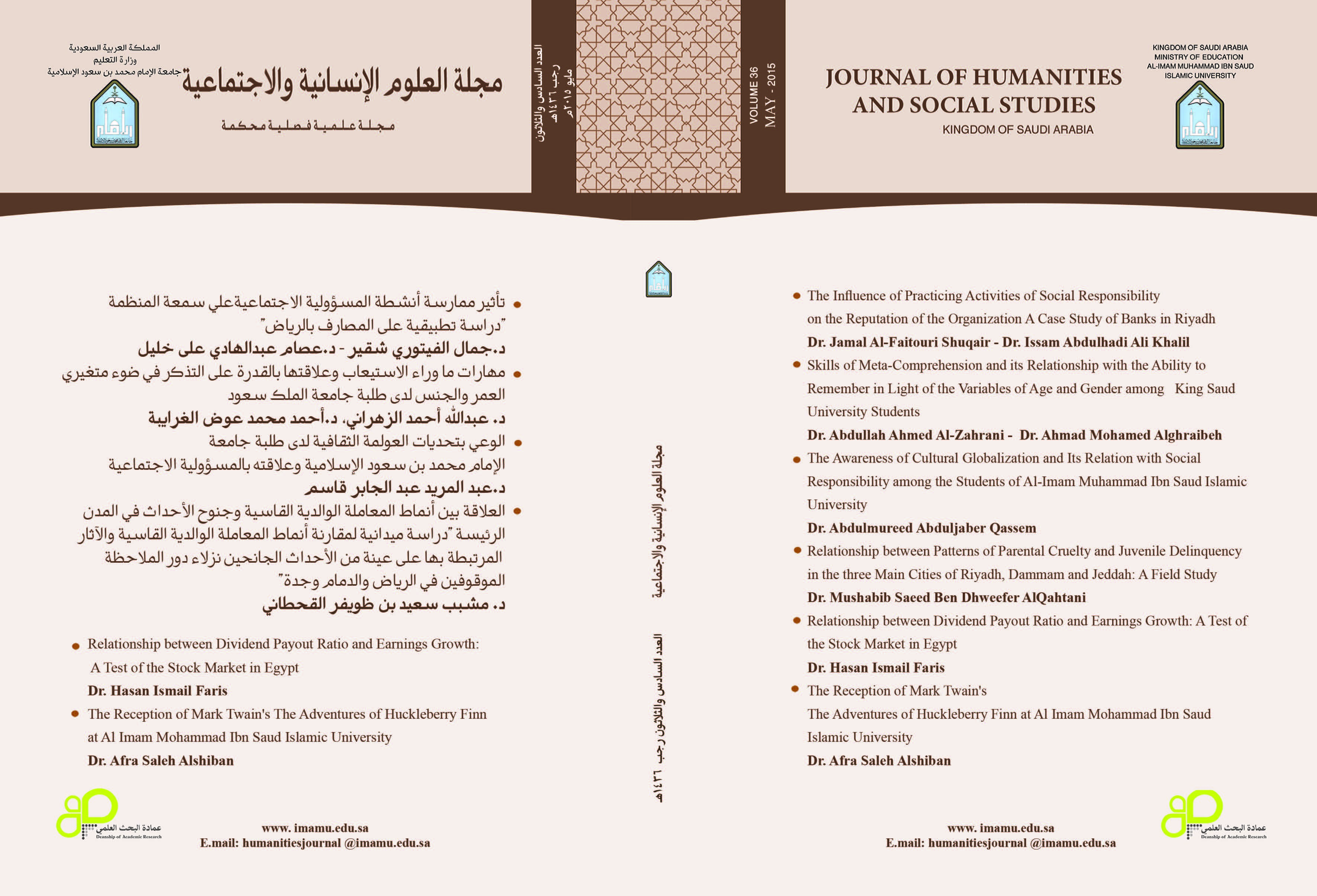Skills of Meta-Comprehension and its Relationship with the Ability to Remember in Light of the Variables of Age and Gender among King Saud University Students
Keywords:
Meta-comprehension, ability, gender, relationship, studentsAbstract
This study aims at examining the relationship between meta-comprehension skills and the ability to remember, the impact of the ability to remember with the variables of age and gender, and the contribution of meta-comprehension in predicting the ability to remember. Two scales are used to achieve the objectives of the study: the meta-comprehension scale and the ability to remember scale. To ensure the appropriateness of the tests to the characteristics of the measured group, the validity testing and the reliability coefficient of both tests were performed. A sample of 96 female and male students from King Saud University were chosen randomly. The results show that there is no statistically significant difference at the level of (0.05) between male and female students in meta-comprehension. However, there are clear differences in averages in favor of females. The female average was (12.26); whereas, the male average was (12.22). The results show, too, that there are statistically significant differences related to gender in the ability to remember in favor of males at the level of (0.01), which can be attributed to gender, and there is a direct correlation at the level of (0.05) after the meta-comprehension task and the ability to remember at the level of the meta-comprehension task and the ability to remember. As for the predictive relationship, it was shown that all the meta-comprehension variables were insignificant statistically except for the task variable which has statistically significant impact at the level of (0.01).




